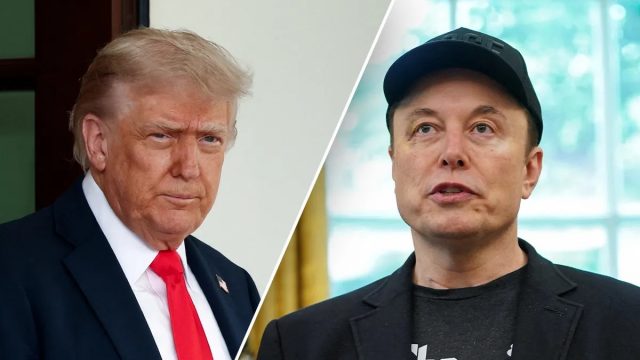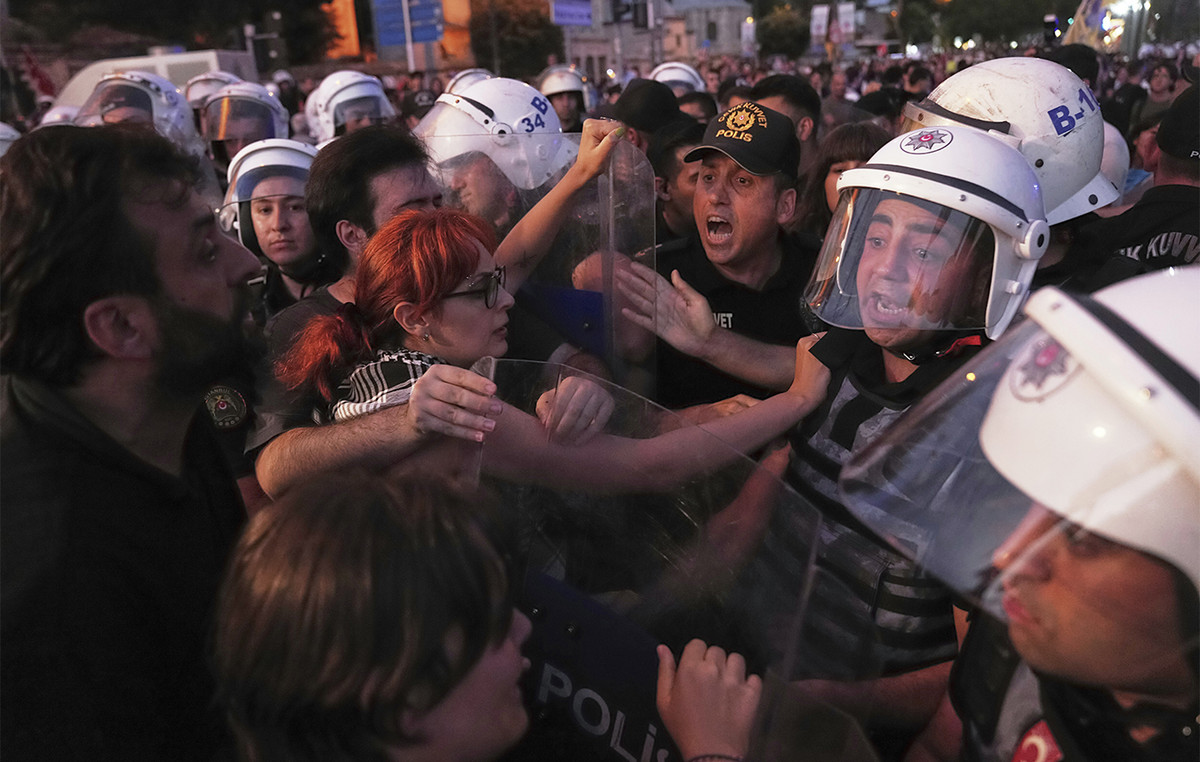Is there a chance for peace between Israel and the Palestinians, or should we just get used to periodic wars that deny both sides the peace and stability they seek?
It is easy to be pessimistic. The history of the region is littered with failed peace plans, deadlocked diplomatic conferences and utterly frustrated mediators. Everything seems to have been tried and nothing seems to work. In the end, everyone puts the blame on anyone but themselves.
However, to abandon diplomacy is to accept the unacceptable: eternal war. This is why, even in the midst of the horror of the latter war in Gazathe discussion about a possible two-state solution she stays alive and actually gets stronger.
At his press conference on November 3 in Tel Aviv, US Secretary of State Anthony Blinken, he went further in outlining a permanent solution than any American official has done in a long time. Maybe never. A two-state solution, he argued, is “the only guarantee of a secure, Jewish and democratic Israel. The only guarantee of Palestinians realizing their legal right to live in a state of their own, enjoying equal measures of security, freedom, opportunity and dignity. It is the only way to end a cycle of violence once and for all».
Blinken is right. Ensuring “equal measures of security, freedom, opportunity and dignity” for all people between the Jordan River and the Mediterranean is the only solution that can bring an end.
European leaders recognized this reality in 1980 with the Venice Declaration. The nine members of the European Community (at the time) declared that, “the Palestinian people, conscious of their existence as such, must be enabled to fully exercise their right to self-determination, through an appropriate process laid down in of the comprehensive peace settlement”.
By that time, Arab governments had given up trying to wipe out the state of Israel. After their failure in the 1973 Yom Kippur War, they finally agreed to make peace. But, as the Declaration of Venice recognized, true regional peace would not be possible until the Palestinian issue was settled.
In the optimistic early 1990s, the Oslo Accords they showed what was possible. Palestine Liberation Organization President Yasser Arafat (former terrorist) and Israeli Prime Minister Yitzhak Rabin (former general) shook hands in the White House garden. The path to a two-state solution was established, even if crucial details remained to be worked out.
But the Oslo process ultimately failed, because of the simmering opposition between Israelis and Palestinians. The earlier optimism gave way to Palestinian terrorism and illegal Israeli settlements, and it’s been downhill ever since.
While successive US administrations have made repeated attempts to revive the peace process, none have made it a top priority. By October 7, the Biden administration had left the issue deadlocked, hoping that the region would remain calm while she could focus on other matters.
For its part, the European Union has long maintained a long-term commitment to the Middle East peace process and issued a detailed statement in December 2009 calling for “a two-state solution with the State of Israel and an independent, democratic, contiguous and viable state of Palestine, living side by side in peace and security.” But Europe’s interest in the matter also declined over time. While there were various reasons for this, Israeli Prime Minister Benjamin Netanyahu’s continued efforts to make serious peace talks impossible certainly played a role.
Furthermore, politicians in America, Europe and Israel began to convince themselves that the Palestinian issue could simply be forgotten, since more Arab countries had begun to establish formal diplomatic relations with Israel. “If the Arab world no longer cares about the Palestinians,” they reasoned, “why should we?”
Now that the political quagmire and humanitarian disaster in Gaza have brought the issue back to the fore, it is clear that there can be no solution without some decisive steps towards a two-state solution.
But we must have no illusions. The obstacles are huge. Among the most troubling is the apparent increase in support for violence by disillusioned Palestinians. Hamas is not the only organization that sees terror as the best way forward. In the West Bank, too, the Palestinian Authority has lost control of some areas where it is supposed to provide security and order.
Another major obstacle is the participation of fundamentalist Jewish settlers in the current Israeli government. There are now about 700,000 people living in illegal settlements scattered across lands that are supposed to belong to a future Palestinian state.
Many of these settlers are armed and since October 7 have violently forced hundreds of Palestinians from their homes. Some even openly dream of demolishing the Dome of the Rock and the Al-Aqsa Mosque (Muslim shrine in the Old City of Jerusalem) so that they can rebuild the biblical temple in Jerusalem (destroyed by the Babylonians in 587 BC and again by the Romans in AD 70).
Extremists on both sides want to control all the land between the Jordan River and the Mediterranean Sea by any means necessary. If either side is allowed to gain further ground, this war will become even deadlier than it already is.
The key, then, is to use the renewed perspective of a two-state solution to to strengthen the moderate forces on both sides – and to do it quickly, before more people succumb to doom or despair.
Such an opening it will not happen without a strong, sustained international commitment from the US, the EU and the other Arab states. With Russia ostracized because of its war of aggression against Ukraine, the international community will need a new format to replace the former Middle East Quartet (EU, US, UN and Russia).
Although upcoming elections in the US and elsewhere may distract attention next year, the issue should be made a top priority. We must never abandon diplomacy. Today reminds us what the alternative is to that.
- His article Carl Bildtformer Prime Minister and former Minister of Foreign Affairs of Sweden, was published in Project Syndicate
Source: News Beast
With 6 years of experience, I bring to the table captivating and informative writing in the world news category. My expertise covers a range of industries, including tourism, technology, forex and stocks. From brief social media posts to in-depth articles, I am dedicated to creating compelling content for various platforms.







